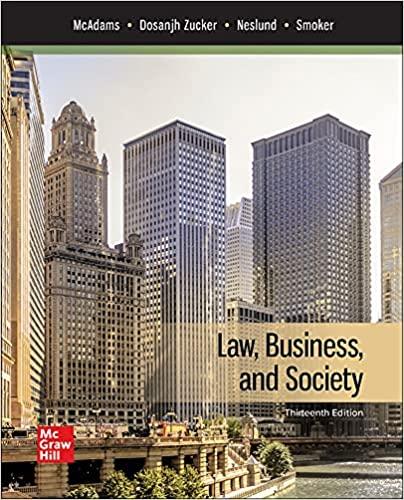Banadex, a subsidiary of Cincinnati-based Chiquita Brands International, paid bribes to Colombian rebels over a period of
Question:
Banadex, a subsidiary of Cincinnati-based Chiquita Brands International, paid bribes to Colombian rebels over a period of years, including $1.7 million from 1997 to 2004 to the AUC (Autodefensas Unidas de Colombia—now disbanded), a right-wing Colombian terrorist group. Chiquita, one of the world’s leading banana producers with operations in 70 nations, learned of the payments in 2000 but allowed them to continue. At the time, terrorists in Colombia were holding Americans for ransom or killing some of them, and years earlier four Chiquita employees had been killed by left-wing guerrillas. The bribes, then lawful under American and Colombian law, were thought necessary to protect employees and company property at Chiquita’s Colombian operations. In 2003, Chiquita allegedly “stumbled across” news that in 2001 the AUC had been designated a “foreign terrorist organization” by the U.S. government, which meant payments thereafter were unlawful, but the payments continued. Chiquita said it was a victim of extortion and that stopping the payments would have endangered its employees. The bribe payments were stopped in 2004, and Chiquita sold its Colombian interests. Chiquita had earned about $50 million in profits from the time AUC was designated a terrorist organization until the period when the payments ceased. During the period of Chiquita payments to AUC, some 4,000 Colombians were killed in the banana-growing region of Colombia. An Organization of American States investigation concluded that 3,000 Central American rifles and millions of rounds of ammunition reached the terrorists after allegedly being unloaded at a Colombian port by Banadex. In 2007, Chiquita pleaded guilty to U.S. charges of engaging in transactions with terrorists and paid a $25 million fine. U.S. Justice Department officials concluded their investigation in 2007 by deciding not to bring criminal charges against former Chiquita officials. Families of Colombians killed or tortured by the terrorists, along with human rights groups, have filed several civil lawsuits against Chiquita. In 2014, the U.S. 11th Circuit Court of Appeals ruled that those claims could not be litigated in the United States and the U.S. Supreme Court declined to review that decision. In 2016 a federal district court in Florida ruled that the Colombian victims’ lawsuits against specific Chiquita executives could go forward. However, in 2019 those lawsuits were dismissed.
Questions
1. Chiquita argued that the safety of its employees required payment of the bribes, even after learning of their illegality. What would you have done, had you been in charge? Explain.
2. Should Chiquita’s corporate officers have been prosecuted by the U.S. government? Explain.
3. In 2019, more than 100 Gold Star Families sued several large U.S. defense contractors for allegedly making illegal payments to the Taliban for “protection,” which the plaintiffs argue funded the Taliban’s attacks on Americans in Afghanistan. What defense might the defense contractors raise? How might the plaintiffs respond? Explain.
Step by Step Answer:

Law Business And Society
ISBN: 9781260247794
13th Edition
Authors: Tony McAdams, Kiren Dosanjh Zucker, Kristofer Neslund, Kari Smoker





